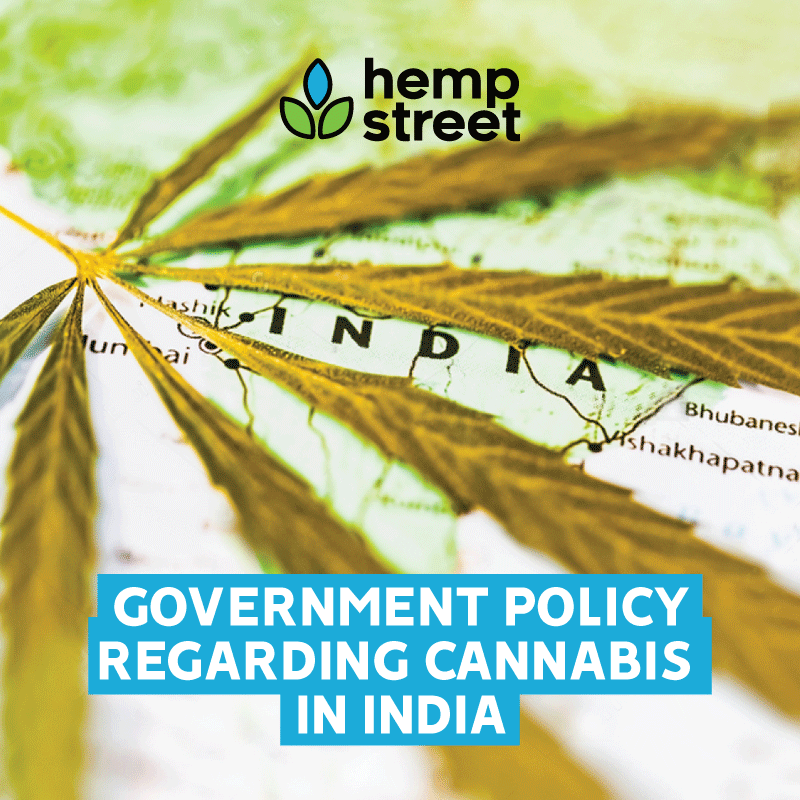The consumption of cannabis has been historically associated with India. Its importance in the contemporary society can be gauged through its universal portrayal in pop culture from all over the world. With the rising trend of legalization of cannabis, various countries have taken measures to do the same, either as recreational or medicinal cannabis. However, in India, the laws regarding cannabis remain somewhat ambiguous. In this article we would study the legality of cannabis in India, as well as, some other countries.
Legality of Cannabis in India
The law that governs the legal status of cannabis in India is called the Narcotic Drugs and Psychotropic Substances Act, 1985. According to this law the possession, consumption, and distribution of cannabis is a criminal offense which could have serious consequences. According to the NDPS Act (1985), cannabis can be defined in terms of the following:
- Charas, which is the separated resin extracted from the cannabis plant, in crude or purified forms. Hashish oil is also included under this.
- Ganja, the flowering top of the cannabis plant, excluding the seeds and leaves.
- Any drink or mixture made from the above mentioned products of the plant.
As per the act, the possession, consumption, and distribution of the aforementioned parts of cannabis is illegal. By this definition, bhang is legal since it is made out of the leaves and seeds of the cannabis sativa plant. Many have pointed out the ambiguity of this law since bhang, which also possesses psychoactive properties, is consumed legally all over India- mainly due to the religious and cultural importance of the drink. Cannabis in the form of charas and ganja is considered as recreational marijuana under the law, as opposed to bhang. That said, the State Governments have the power to make and implement their own laws regarding cannabis.
India’s views on hemp seem to be evolving. In 2015, Uttarakhand became the first ever state in India to allow the cultivation of industrial hemp. The consumption of weed is legal and very common in the state of Odisha, while in Assam, the possession, consumption and sale of both bhang and ganja are illegal. In 2019, CBD oil derived from hemp with low THC levels, was made legal in India. The THC content in these products should be lower than 0.3%. Overall, despite some scope for improvement, laws regarding medical cannabis remain strict in India.
Legal Status of Cannabis in Other Countries
The legality of marijuana in some other countries is as follows:
U.S.A
In the past few years, thirty-three states in the U.S and the District of Columbia passed laws legalizing marijuana in one form or the other.
States such as: Alaska, Colorado, Maine, Illinois, California, Massachusetts, Nevada, Michigan, Oregon, Washington, Vermont, as well as the District of Columbia adopted laws legalizing marijuana for recreational use in addition to the pre-existing laws allowing medical marijuana. While some states such as Montana, North Dakota, Minnesota, etc. do not permit recreational use, medical marijuana is legal there. Since a majority of the states in the U.S have legalized marijuana in some form or the other, it is widely accepted in the country.
Canada
In Canada, cannabis was already legal for medicinal purposes earlier, as per the conditions outlined in the Access to Cannabis for Medical Purposes Regulations (ACMPR). Furthermore, on 17th October 2018, Canada legalized cannabis for recreational purposes as well. According to the law, persons aged 18 and above can possess up to 30gms of dried or non-dried weed in public.
According to the Cannabis Act, legal use is allowed all over Canada; however, each province and territory can have its own restrictions and regulations regarding the consumption, and distribution of cannabis.
Other Countries
Europe is amongst the most progressive in terms of medical cannabis since a lot of countries including the Netherlands, Poland, Romania, Norway, Germany, Italy, Greece, etc. have legalized medical cannabis for patients. Various other countries from all over the world have joined the list as well: Argentina, Australia, Chile, Colombia, Croatia, Cyprus, Czech Republic, Jamaica, Israel, Luxembourg, and so on. This list does not include India.
Conclusion
As per the data above, many countries have realized the importance of cannabis in the field of medicine, and therefore, legalized it. India, despite its changing attitude towards the same, still has a long way to go.




